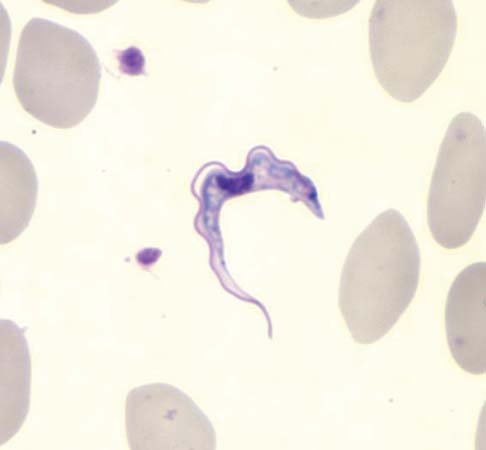Trypanosomiasis is a disease that is characteristic to subsaharan African countries. The disease, in humans, is mostly caused by two species of salivarian trypanosomes: Trypanosoma gambiense and Trypanosoma rhodesiense. These trypanosome species are called salivarian because they are transmitted when the vector wants to take blood meals. The definitive host of both trypanosomes is man and their vector is the tse tse fly (Glossina spp) which is indigenous to tropical Africa. Although both trypanosomes share a common definitive host, they are both found at different parts of Africa. Trypanosoma gambiense occurs mostlyvin West Africa, while Trypanosoma rhodesiense occurs in East Africa.
NOTE THAT: Uganda has both species of the trypanosomes although they do not occur in the same parts of the country.
The disease, trypanosomiasis is often common to rural community dwellers in the affected parts of Africa, who mostly hunt and fish for a living; as the vector is found along river sides and in forests.
The pathological journey of the disease begins after a victim has been bitten by the vector. The bite usually triggers itching and irritation which will result in a red lesion around the injury. After some days, the symptoms would graduate to headaches and irregular temperatures, both would fluctuate for weeks or months. Accompanying symptoms include :continuous fatigue, inflammated glands, lack of desire or determination, immune system collapse etc. In females, child birth could be a great danger.
The symptoms of the disease may disappear after months, although the parasite attacks the cerebrospinal fluid during this time. This is when "sleeping sickness" really happens because there would be increased rate of mental and physical weakness, accompanied by depression, a constant need to sleep and no motivation to eat. If this continues, muscular convulsions and serious emaciation will set in. At this point, the victim may most probably die.
Another difference between both parasite species is that trypanosomiasis caused by Trypanosoma rhodesiense is quicker at attacking the cerebrospinal fluid. This makes Rhodesian trypanosomiasis more deadly.
Trypanosomiasis can however be controlled by the immediate treatment of infected patients, use of repellants for houses, proper houses around liable areas etc.
NOTE THAT: Some trypanosomes are pathogenic to animals.
Chagas disease which occurs in America is a form of American trypanosomiasis. 
